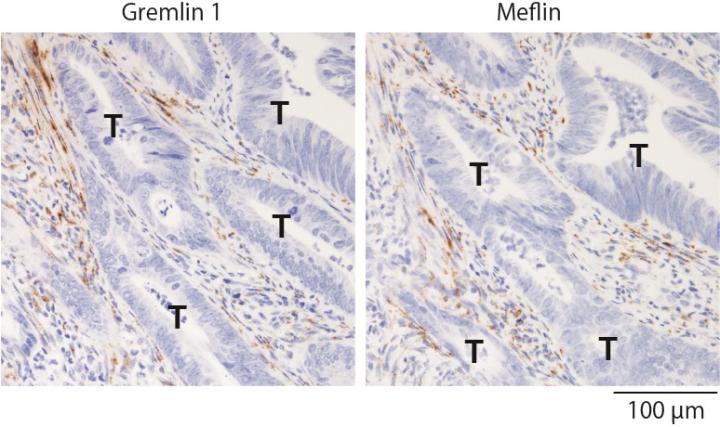Altering balance of fibroblasts could prevent spread of colorectal cancer
Posted: 1 February 2021 | Victoria Rees (Drug Target Review) | No comments yet
Researchers have found that colorectal cancer-associated fibroblasts can be altered using a gremlin 1-neutralising antibody or by overexpressing meflin.


Researchers have revealed that colorectal cancer tissues contain at least two types of fibroblasts – cancer-promoting fibroblasts and cancer-restraining fibroblasts. The team, from Nagoya University, Japan, found that the balance between the two is largely involved in the progression of colorectal cancer. Their findings suggest that artificially altering the balance between the two types of cells could curb the spread of colorectal cancer tumours, which may become an effective strategy for preventing cancer progression.
According to the researchers, cancer tissues comprise both cancer cells and non-malignant cells such as fibroblasts. Previous studies have suggested that the proliferation of fibroblasts is largely involved in the progression of colorectal cancer. Fibroblasts within cancer tissues, called cancer-associated fibroblasts (CAFs), are considered to be divided into at least two populations: those that promote cancer progression and those that restrain it. Impeding the function of cancer-promoting CAFs could be a promising method to prevent cancer progression, but a lack of understanding of the mechanism underlying heterogeneity of CAFs has hampered its development.
In normal colon tissues, proteins called bone morphogenetic proteins (BMPs), which are secreted by stromal cells, are known to play a critical role in regulating intestinal homeostasis, whereas in cancerous colon tissues, they are considered to be associated with cancer progression.
In the new study, the researchers investigated how stroma cells lead BMPs to be involved in the progression of colorectal cancer.
The team first analysed comprehensive gene expression profiling data to identify BMP-related genes that are specifically expressed in colorectal CAFs. Two types of proteins, meflin and gremlin 1, were identified to be encoded by such genes.


Representative images of human colon cancer tissue showing the localisation of gremlin 1-positive (left) and meflin-positive (right) CAFs in the stroma. Brown denotes CAFs that are positive for gremlin 1 or meflin T., tumour cells [credit: Atsushi Enomoto].
The research group examined the prognostic significance of the expression of meflin and gremlin 1 in colorectal cancer patients and found that those with a high expression of meflin have a favourable prognosis, whereas those with a high expression of gremlin 1 have an unfavourable prognosis. In addition, experiments using a mouse model revealed that the proliferation of colorectal cancer cells can be suppressed through administration of a gremlin 1-neutralising antibody or overexpression of meflin.
“We hypothesise that CAFs mediated by gremlin 1 promote cancer progression by decreasing BMP signalling, whereas CAFs mediated by meflin restrain the growth of the cancer by reinforcing BMP signalling,” said Professor Atsushi Enomoto, one of the lead researchers from the study.
The researchers conclude that intensifying stromal BMP signalling, either by using a gremlin 1-neutralising antibody or by overexpressing meflin, could be an attractive therapeutic strategy to treat colorectal cancer.
The findings were published in Gastroenterology.
Related topics
Antibodies, Genetic Analysis, Oncology, Protein, Protein Expression
Related conditions
Colorectal cancer
Related organisations
Nagoya University
Related people
Professor Atsushi Enomoto








